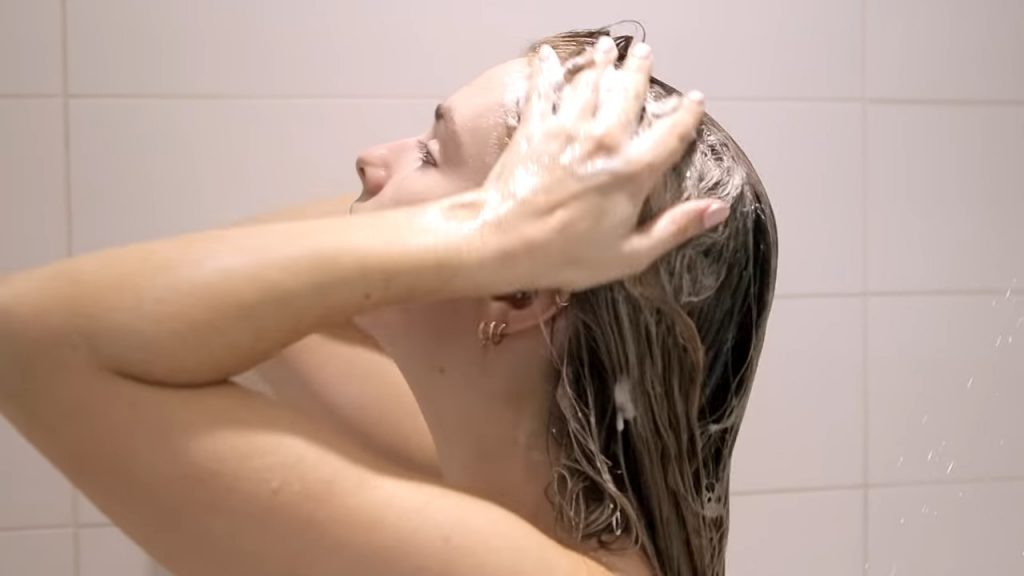When it comes to managing psoriasis, even small details matter, including the type of water you bathe with. Surprisingly, many people overlook the impact of water quality on their skin condition.
Using hard water to shower can unknowingly worsen your psoriasis. It’s important to be aware of this issue.
This article will explore the negative effects of hard water on your skin and provide solutions to help manage psoriasis. Keep reading to learn more.

What We Can Consider as Hard Water?
Hard water is a term used to describe water with a high mineral content. When water passes through mineral-rich soils, it absorbs these minerals, resulting in hard water. This issue is more prevalent in some regions than others, and not everyone experiences it.
The two most common minerals found in hard water are magnesium and calcium, with manganese and iron sometimes present as well.
While a small amount of extra magnesium in water may not harm psoriasis, excess calcium can be detrimental to skin health. Therefore, special care is necessary when using hard water to promote healthy skin.

Side Effects of Hard Water on Psoriasis
Hard water can have several negative effects on psoriasis, which can aggravate the condition. Here are some side effects of hard water on psoriasis:
- Dryness: Hard water can cause dryness and irritation on the skin. The minerals in hard water can strip away the natural oils from the skin, making it dry and itchy.
- Flare-ups: The minerals in hard water can trigger psoriasis flare-ups by irritating the skin. The buildup of minerals on the skin can cause redness, inflammation, and itching, which can worsen psoriasis symptoms.
- Clogged pores: Hard water can clog the pores of the skin, leading to acne and other skin issues. When pores are clogged, it can be difficult for the skin to absorb moisturizers and other topical treatments, which are necessary for managing psoriasis.
- Skin damage: Over time, hard water can cause damage to the skin, making it more prone to infections and other issues. This is especially true for people with psoriasis, as their skin is already compromised.
- Discoloration: Hard water can cause discoloration of the skin, making it look dull and lifeless. This can further affect the confidence of people with psoriasis, who may already feel self-conscious about their skin.
To manage psoriasis effectively, it is essential to minimize the negative effects of hard water. This can be done by using water softeners or other treatment options that remove the minerals from the water.
Short-Term Effects of Hard Water on Psoriasis
The most noticeable short-term effect of using hard water on psoriasis is dry skin, which can lead to flaking and itching. If your skin’s pH is already unbalanced, using hard water can lead to breakouts within a matter of days. In addition, if you experience dull and itchy hair and scalp, it may be a clear sign that hard water is negatively affecting your skin.
Long-Term Effects of Hard Water on Psoriasis
One of the most common and dangerous long-term effects of using hard water is the breakdown of collagen in the skin. Hard water can cause premature aging by reducing collagen levels in the skin. Collagen is essential to maintaining skin firmness and elasticity, and a lack of it can exacerbate psoriasis and other skin issues. To mitigate these long-term effects, it is crucial to use water softeners or other treatment options to remove the minerals from the water.

5 Ways Counter Hard Water Effects on Psoriasis
Here are five ways to counter the effects of hard water on psoriasis:
- Switch to a water-based cleanser: Many people believe that hard water causes psoriasis flare-ups, but in reality, it may be their soap. Consider switching to a water-based cleanser that doesn’t leave any residue on your skin and is gentle on psoriasis-prone skin.
- Use an after-bath humidifier: Hard water can cause dryness and irritation to the skin. Consider using an after-bath humidifier to fill the air in your room with water vapor, which can help keep your skin healthy. Sleeping with a humidifier can reduce the harsh effects of hard water and complement your skincare routine.
- Shorten your showers and baths: Keep your baths and showers brief and cooler, as long hot showers and baths can cause your skin to dehydrate and become more susceptible to irritation, especially for those with psoriasis. Take your time to get clean, but keep it brief whenever possible.
- Moisturize your skin after bathing: Moisturizing is essential for psoriasis patients, as it helps retain water on the skin. Apply your favorite moisturizer at the right time to help keep your skin healthy and hydrated in the long run.
- Consider water softening treatments: Installing a water softener or using other treatment options can help remove minerals from hard water, reducing the potential negative impact on your skin. Consult a professional to find the best treatment for your specific water source and psoriasis condition.